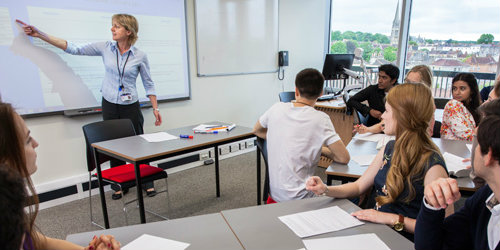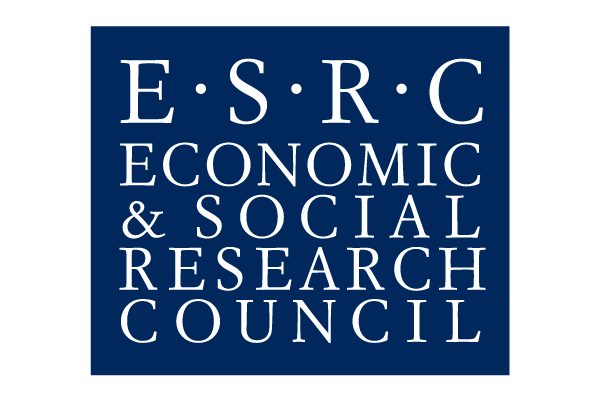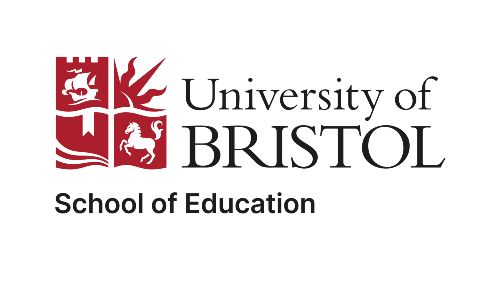A productive partnership in professional learning for maths teachers
Bristol research informs the use of Video Clubs for teacher development by the National Centre for Excellence in Teaching Mathematics (NCETM)
The challenge
Alf Coles came to the University after fifteen years' experience in secondary schools teaching mathematics, running a maths department and as an assistant headteacher. His research has focused on teachers learning to teach mathematics, particularly on the role of video in their professional development. He repeatedly found that, while it is commonly reported to be hard to run a video-based learning session which leads to change and not just to judgement, the ways of working he adopted consistently led to effective discussion and the opening of possibilities for change. However, there are few mechanisms by which teacher leaders could gain the expertise to run such professional development effectively.
Research impact - Video clubs supporting maths teacher development
The remit of the government-funded National Centre for Excellence in Teaching Mathematics (NCETM) includes support for 32 local Mathematics Hubs in a national network. Following meetings with Alf, they put their support behind the use of video clubs for teacher development. While these were well established in the USA, Israel and other countries, and video featured in lesson studies in Japan, Thailand and beyond, there was no widespread and systematic use of video for professional development in the UK.
In 2015, Alf won ESRC Impact Acceleration Account (IAA) funding to work with the NCETM to make his researched solution to the issue widely available to a professional audience. Together they produced a toolkit, freely available online, to support the running of video clubs. In doing so, they have created a network of primary and secondary school practitioners making use of the research, and established a local video club, under the auspices of the newly formed Boolean Mathematics Hub linking schools in the wider South West region.
Working with Haiyan Xie, Jiangsu Normal University (Teacher Education), a visiting fellow from China and colleagues at Birzeit Univ, Palestine, Alf also aimed to enhance growing international awareness among non-‐ academics. For example, the IAA proposal included making the materials accessible to mathematics teachers in China and the Middle East by providing online versions in Mandarin and Arabic.
Challenges were met by the project team as they progressed. To test and shape the resource material, there were to two groups of teachers meeting on six occasions over a three-month period in 2014-15 and 2015-16. After the first meeting, group members would undertake to provide video clips from their own classrooms for viewing by the group. Although a risky approach, it worked well – the meetings were well received and the feedback from participants both positive and constructive.
‘Just that judgment, being judged and judging … After we watched that first [video] … we were making judgments … but then that wasn’t really reflection’ (Teacher J)
Under-recruitment though led to a revised approach. The plan for six twilight meetings was something, in a busy teacher’s workload, that was simply impossible for everyone. With the support of Local Authorities, the team switched to holding the clubs during the school day and despite the extra cost to schools, it proved successful.
The website toolkit was completed as planned and is available at mathsvideoclubs.ac.uk/ Two planned translations of the website into Arabic and Mandarin were also completed but getting them online was another challenge. Key personnel in Palestine moved institutions, causing a significant delay, while the Mandarin version came up against the problem of access to YouTube, where video clips exemplifying the approach are stored. However Alf has continued to disseminate the work and the toolkit, for example in Singapore (2017), Sweden (2018) and South Africa (2019), following take up of the model in Germany and Canada.
Teachers have commented in remarkably consistent ways about what they have gained from working with video in the manner of these video clubs. For example: “this process has helped me, when I come to compare, when I come to observe now, because I’ve stopped now thinking about how I would do it and looked at actually what are the children doing, how are they achieving that and what is the teacher doing to get them to achieve that” (Teacher P) and “At the very beginning I found it so difficult just to be objective and I have realised that this is a direct reflection of how I am in the classroom. I listen to children and sometimes I don't listen to the question for the question’s sake, I move it on, trying to keep that pace high” (Teacher T).
The teachers here reflect on the significance of a practice which helped them move away from their initial judgments of situations and are aware of the impact this has either on their work with other teachers (Teacher P) or in their classroom (Teacher T).Discussions are now taking place between Alf and Iris Connect, a commercial company who provide a platform for school-based video sharing and reflection, about how the researched ways of working might be made accessible to users of that platform.
Pete Griffin, Assistant Director, Maths Hub welcomed the work - “The NCETM has been very pleased to support and help to promote this project as it accords with our belief in the importance of teachers engaging in research and developing evidence-based approaches to teaching…It is clear that teachers who have been involved in this project have found it very supportive of their professional development”.
Researcher
Non-academic partner
National Centre for Excellence in Teaching Mathematics (NCETM)
Funder
Related research groups
Publications
- Maths video clubs toolkit
- Coles, A. (2019) Facilitating the use of video with teachers of mathematics: learning from staying with the detail, International Journal of STEM Education, 6 (5): 1-13.
- Coles, A. , Horoks, J., Chesnais, A. (2018) Theory and the Role of the Mathematics Teacher Educator: A Comparison of Teacher Education Sessions in France and UK using Video, Annales de didactique et de sciences cognitives, 5, 119-144.
Date published
July 2019
 Study Education
Study Education
Join us in improving educational environments for future generations


